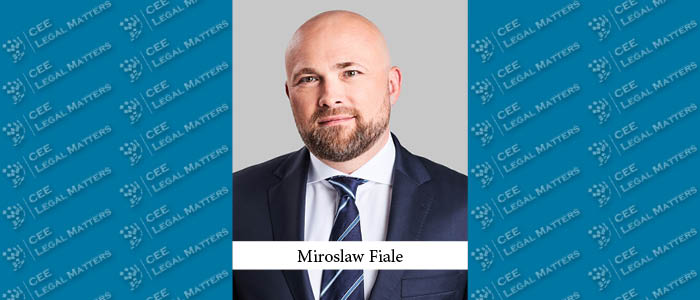Poland’s dynamic business landscape is about to transform as it adapts to the European Union’s Foreign Subsidies Regulation dated December 14, 2022 (FSR), which partially came into effect on July 12, 2023. This regulation aims to level the playing field for companies operating in the EU market by scrutinizing financial support from non-EU countries.
The FSR: A Game Changer for Poland
The FSR introduces a mechanism that verifies sources of funding from countries outside the European Union. Until now, funding provided to entrepreneurs by EU member states had to comply with state aid regulations. In contrast, subsidies provided by third countries were not subject to control by any EU instrument. The FSR is intended to close this regulatory gap.
As of October 12, 2023, undertakings receiving foreign subsidies will be required to notify the European Commission (Commission) of this fact. What is crucial, the Commission will be able to investigate foreign subsidies granted up to five years before the FSR enters into force if the effect of distorting the EU internal market appears after the FSR enters into force.
Defining “Use of Foreign Financing”
What does “the use of foreign financing” mean according to the FSR? It should be understood as a situation in which: (1) there is a concentration of the undertakings involving a financial contribution from a non-EU country if (i) the acquired undertaking, one of the merging undertakings, or the joint venture generates an aggregate turnover of at least EUR 500 million in the EU and (ii) the foreign financial contribution is at least EUR 50 million; (2) an economic operator participates in a public procurement procedure and (i) the estimated value of the contract is at least EUR 250 million and (ii) the foreign financial contribution involved is at least EUR 4 million per third country; (3) an undertaking uses any other form of external financing (foreign subsidies) that comes directly or indirectly from non-EU countries.
The last of the above situations is an open catalog of events that the Commission will be authorized to investigate. Foreign subsidies are involved when “a non-EU country makes, directly or indirectly, a financial contribution that benefits an enterprise that operates in the EU internal market and that is limited in law or in fact to at least one enterprise or at least one industry.” Such financial contributions include grants, loans, loan guarantees, and debt or tax remission.
Understanding “Non-EU Third Countries”
When it comes to “non-EU third countries,” they are defined broadly in the FSR as: (1) government institutions at a central level and public bodies at all other levels; (2) a foreign public entity whose activities are assigned to a third country, or (3) a private entity whose actions are assigned to a third country, taking into account all relevant circumstances.
The Commission’s Role in Investigations
During the investigation procedure, the Commission will primarily control the amount of the foreign subsidy, the nature of the foreign subsidy, the micro and macro-economic situation of the undertaking benefiting from the financing, and the development of the undertaking’s business activities in the EU market. Defined as “increased risk subsidies” will be financing granted to an ailing undertaking, directly facilitating a concentration or in the form of an unlimited guarantee. If the negative effects of a granted or intended subsidy outweigh its positive aspects, the Commission will have the power to impose redressive measures and order that the subsidy be repaid, accept the undertaking’s commitment to remedy the distortion caused by the foreign subsidy, or express an objection to the financing. In addition, the Commission may impose a fine not exceeding 10% of the aggregate turnover in the preceding financial year.
The FSR gives the Commission flexibility in evaluating whether or not a particular subsidy will distort the market balance. It is to be expected that the Commission’s practice around the FSR will develop, thus providing a benchmark for the market standards regarding foreign subsidies and defining the targeted entities.
Adapting to the FSR in Poland
Looking at the quantitative criteria in the FSR, it should be considered that the new regulations will be of particular significance for large-scale transactions on the Polish M&A market. Henceforth, entities planning an M&A transaction in the European market, including Poland, should thoroughly review the shareholding and capital structure. This step is crucial to ensure that they do not meet the subjective criteria specified in the FSR. While it’s expected that the provisions of the FSR will have limited application within the Polish economic landscape, companies should still be mindful of their potential implications. In every M&A transaction involving undertakings from non-EU countries, conducting a comprehensive analysis in this regard is strongly recommended.
By Miroslaw Fialek, Managing Partner, MFW Fialek
This article was originally published in Issue 10.9 of the CEE Legal Matters Magazine. If you would like to receive a hard copy of the magazine, you can subscribe here.
